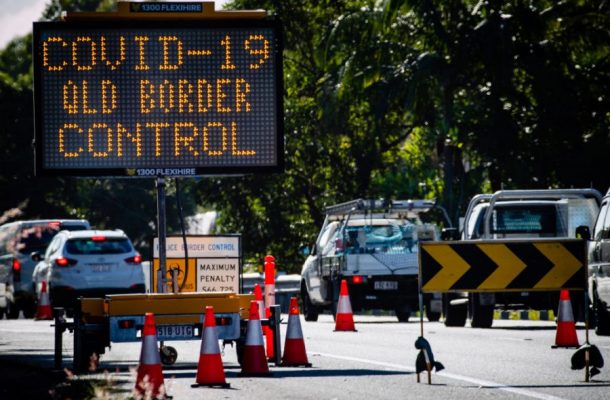One nation divided under COVID

Much is being said about the impact of the Covid-19 pandemic, the measures used to deal with it, and how Australians are coping as a result.
It’s unsurprising that levels of alarm and disillusionment have risen in our communities, particularly among the young, as we see our society increasingly divided. While our state, territory and national leaders demonstrated a unity of purpose in the early stages of the pandemic, that has now given way to a growing sense that threats lie both within and beyond our borders.
Continuing down a path paved by divisive rhetoric and distrust in our leaders will damage our country, leaving an increasingly difficult situation for future generations to manage.
A clear political self-interest has created an unhealthy ‘us versus them’ mentality. The ‘them’ could be our neighbours, the travellers with the different number plates, or the unknown masses beyond our nation’s border. We are characterising them, making assumptions and asking, ‘Why are they here?’ and ‘What if they’ve got Covid?’
This attitude flows from rhetoric played out daily on social and mainstream media and in our communities, some of it coming from our elected leaders. Australians, especially young Australians, are tired of watching the constant blame-shifting across the country, which minimises and draws attention away from discussion of critical policy solutions. They want our leaders to develop the policy solutions necessary to appropriately deal with these crises, in the short and the long term.
There’s concern that this divisive approach could have lasting negative impacts on our society. It may well contribute to a growth in extremism and the foundation of hate groups. At the very least, it will drive rising distrust in the people and institutions that are there to guide and support our communities, and distrust in democratic institutions and processes.
Our democratic society is built on the common-law notion that citizens are to be allegiant to their nation and in return the nation protects those individuals. Now we’re seeing our nation’s leaders, burdened by the many ongoing and simultaneous crises, struggling to ensure that Australians as a whole feel protected. The reactions of some individuals to lockdowns reflect this distrust. Some, fearful of public health restrictions and the economic impacts on their families, aren’t following government advice and that is contributing to the crisis.
Perspective plays an important role in our lives, influencing our attitudes and beliefs. It is often shaped by our close community, by social media and by what we see on the news.
For instance, you could look at the Olympics and see the inherent nationalism that pits country against country. Or, you could look at it differently and see what many athletes have demonstrated this year—compassion and kindness.
People of all nations are crying out for inclusivity and equality. This is the kind of leadership we need to be seeing from our governments. Although we can give in to our own insecurities, perpetuating the us-versus-them mentality, we crave the good-news story of people looking out for each other, now more than ever.
To ensure that our country doesn’t go down a very dark and harmful path, we need clear leadership and clear communication. This means we need people across the state, territory and national political divides to work together.
We’ve already seen the benefits of state and territory governments using existing mechanisms to work with community leaders in ensuring the needs of minority groups are met during a crisis. Clearly communicating policy, be it through mainstream media conferences, social media posts or information provided in multiple languages, will ensure that every individual has access to the advice our leaders and their experts are providing us.
We also need enduring policies that consider varying perspectives, potential obstacles and the imperative to adjust them as necessary to changing conditions. Australia’s latest wave of Covid-19 demonstrates that we need policies providing both short- and long-term solutions.
While policies focused on the immediate issues are important to address the critical challenges facing communities and individuals, we cannot rely on band-aid solutions to provide enduring assistance in these unpredictable times. Our policymakers will need room to consider the longer-term impacts of these crises on our community and strategic direction, and to anticipate potential obstacles.
Australia’s future will undoubtedly be damaged by continually divisive rhetoric and behaviour. Young Australians are looking to our leaders to provide an example, to demonstrate that while they will make mistakes because they’re human, they are capable and can be trusted.
If our leaders can demonstrate that they are working with and listening to our communities and that they are formulating and implementing enduring policy solutions, and if they can communicate those ideas clearly, our country will be well positioned to turn away from the harmful mentality of ‘us versus them’.
This article was published by The Strategist.
Julia Butler is the Lead Coordination for ASPI’s Professional Development team, having started work at ASPI in January 2020 as the ASPI-PD intern.












